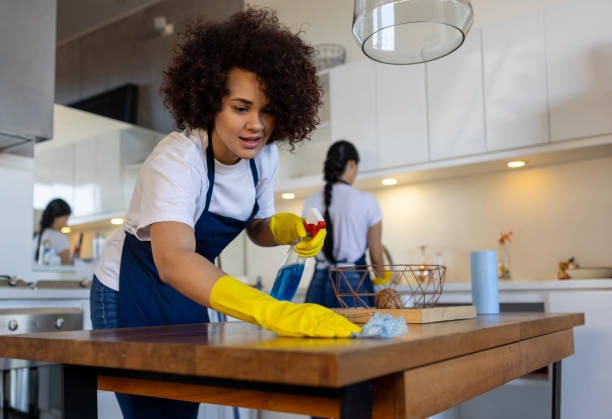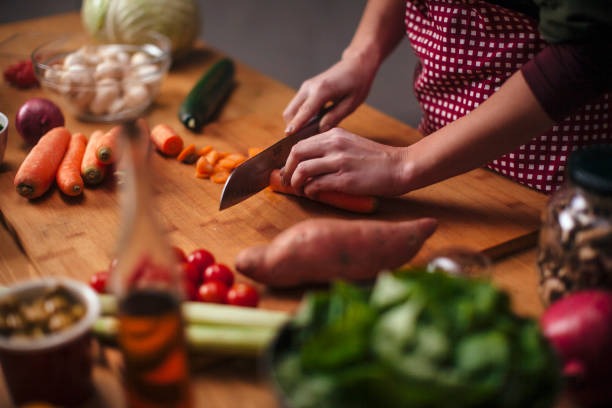Housemaids have long been an indispensable part of households, ensuring that homes are clean and well-organized. However, in recent years, the role of housemaids has evolved beyond mere cleaning duties. Today, they are expected to provide care, support, and even household management expertise. In this article, we will explore the five essential tasks that modern housemaids should embrace to excel in their profession and contribute to the well-being of the families they serve.
The Changing Role of Housemaids
Throughout history, housemaids were primarily responsible for basic cleaning and performing household chores. Today, their responsibilities extend far beyond these traditional tasks. Modern households require housemaids who can multitask, manage households efficiently, and provide essential care and support.
Task 1: House Cleaning and Organization:

Cleaning and maintaining the household is at the core of a housemaid’s responsibilities. This includes cleaning different areas of the house, such as living spaces, bedrooms, bathrooms, and the kitchen. Attention to detail and thoroughness in cleaning are vital to ensure that the house remains a comfortable and hygienic environment.
Moreover, housemaids should focus on organizing belongings to maintain order and tidiness. By keeping things in their proper places, they can help the family members find what they need easily, leading to a more efficient and stress-free environment.
Task 2: Laundry and Clothing Care:

Taking care of the family’s laundry is another crucial aspect of a housemaid’s role. This includes sorting, washing, and ironing clothes with care. Housemaids should also be knowledgeable about handling delicate fabrics and effectively treating stains to ensure that the family’s clothing remains in good condition.
Additionally, organizing clothing and linen closets is essential to maintain order and make it convenient for family members to access their garments.
Task 3: Cooking and Meal Preparation:

In many households, housemaids are expected to be skilled in basic cooking and meal planning. This includes preparing nutritious and delicious meals while considering the family’s dietary preferences and restrictions.
A housemaid with culinary skills can take a significant load off the family’s shoulders, ensuring they have access to wholesome meals without the stress of meal planning and preparation.
Task 4: Childcare and Elderly Support:

As part of their evolving role, modern housemaids are often entrusted with the care of children and providing support to the elderly members of the household. This requires a nurturing and caring approach to ensure the well-being of those under their care.
For children, housemaids may assist with homework, engage in educational activities, and ensure a safe and enjoyable environment. In the case of elderly family members, they provide companionship and support, helping them with daily tasks and making their lives more comfortable.
VI. Task 5: Household Management and Communication:

Efficient household management is a crucial skill for modern housemaids. This involves scheduling and coordinating tasks to ensure everything runs smoothly. Keeping track of inventories and purchasing household supplies are also essential aspects of household management.
Moreover, effective communication with family members and other staff members is vital to understand their needs and expectations, fostering a harmonious and productive work environment.
The Importance of Empathy and Emotional Support:
Beyond the physical tasks, modern housemaids should recognize the emotional needs of the family members they serve. Being a compassionate listener and offering emotional support can significantly contribute to a positive household atmosphere.
By building trust and understanding the emotions of the family, housemaids can establish lasting relationships and provide exceptional care.
Continuous Learning and Skill Development:
To thrive in their profession, housemaids should be open to learning and improving their skills continually. Staying updated with new cleaning techniques, household management trends, and even pursuing relevant courses or workshops can make them more valuable assets to the household.
Balancing Professionalism and Personal Boundaries:
While being caring and supportive, housemaids should also maintain professionalism in their approach. Setting personal boundaries is essential to ensure a healthy work-life balance and avoid potential issues that may arise from overly familiar relationships.
Mutual respect and appreciation between employers and housemaids are critical to fostering a positive working relationship.
Conclusion:
As the role of housemaids continues to evolve, it becomes evident that they are no longer merely cleaners but vital caregivers and household managers. By embracing the five essential tasks outlined in this article, modern housemaids can elevate their profession and provide unparalleled support to the families they serve. Combining expertise with empathy and care, housemaids contribute to creating homes that are not only clean and organized but also nurturing and harmonious environments for everyone under their care.

